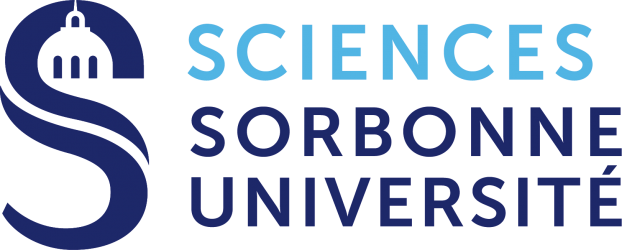
Université Paris Nord


M2 Apprentissage et Algorithmes (M2A)
Master Mathématiques et Applications / Master Informatique – Sorbonne Université




Apprentissage automatique pour la validation d’une commande en boucle ouverte d’un snake-like robot.
Contexte :
Dans un contexte médical où la chirurgie mini-invasive tend à se standardiser, il est nécessaire de développer de nouvelles architectures robotiques afin de répondre au mieux aux besoins des chirurgiens et aux attentes des procédures à réaliser. C’est dans ce cadre qu’un robot a été développé afin de permettre une simplification des stratégies de contrôle et d’être plus économe en énergie. Du fait de la robustesse mécanique de la structure développée, le contrôle du robot est réalisé en boucle ouverte. En d’autres termes, le modèle du robot étant clairement établi, le lien entre l’entrée et la sortie du système est donc connu et ne nécessite aucune rétroaction à l’aide de capteurs.
Objectif :
Malgré la robustesse du robot, sa configuration peut être altérée par la variabilité de l’environnement ou par les forces transmises aux articulations en amont lors de l’exécution de la procédure.
Même si l’opération à effectuer est réussie, ce qui serait classé comme un succès, toute corruption de la configuration est un échec de la stratégie de contrôle utilisée.
Le travail consistera donc tout d’abord à mettre en place un système intelligent permettant d’identifier le succès ou l’échec d’un déploiement en comparant un vecteur descripteur initial (trajectoire prévue) et un vecteur descripteur final (trajectoire prise par le robot lors de son extraction). Cette étape permettra de quantifier l’erreur liée à ce schéma de contrôle, afin de mettre en évidence des schémas caractéristiques minimisant les risques de modification de la configuration du robot. L’idée est que ces schémas soient ensuite utilisés en phase préopératoire et pris en compte lors des phases de planification futures.
Le candidat doit idéalement préparer un master (ou équivalent) en informatique, avoir suivi des cours d’apprentissage automatique et être à l’aise avec python.
Le stage aura lieu dans les locaux du LIRMM à Montpellier pour une période de 5 mois.
Candidature : pour postuler à l’offre de stage, veuillez m’envoyer un CV par email à l’adresse suivante benjamin.calme@lirmm.fr

*Research assistant* (MSc or about to graduate, 1 year) with interest
pursuing a PhD
– *Call publication link*:
https://www.unibz.it/en/home/position-calls/positions-for-academic-staff/6066-information-processing-systems-prof-lanz?group=18
– *Application deadline*: 19.01.2023 at 12pm (noon) ITA time
– *Research topic*: in the context of image and video understanding.
– Please find more information at the indicated call link.
Applications are open for a fully-funded PhD studentship (4 years, funded
by the EPSRC, starting in September 2023) at the Department of Computer
Science and the Centre for Artificial Intelligence at University College
London. The application process is quite tight – the deadline for
applications is January 26, 2023.
My proposed PhD project is titled “Modelling infectious disease prevalence
with AI methods and online user activity” and is described here:
https://ucl-epsrc-dtp.github.io/2023-24-project-catalogue/projects/2228bd1193.html
Applications should be submitted at
https://www.ucl.ac.uk/epsrc-doctoral-training/prospective-students/apply-ucl-esprc-dtp-studentship
Please get in touch via email (v.lampos@ucl.ac.uk) if you need more
information. However, given the tight application process, please do not
hesitate to apply without contacting me in the first place!
Best regards,
Vasileios Lampos


My group Trustworthy Machine Learning at the Institute for AI in Medicine
is offering a position for a scientific software developer. This developer
will work closely with researchers to implement novel federated learning
approaches in order to conduct real-world medical studies. The developer
will take part in publications and has the opportunity to publish
themselves.
The position can be prolonged with the possibility of switching to a PhD
position.
The research group is located in at the Ruhr-University Bochum, Germany in
the vibrant Ruhr area. The Institute for AI in Medicine is a new,
fast-growing center for AI research in healthcare, directly connected to
the University Hospital Essen. The compensation is based on the TV-L E13
salary (see this link for 2021 salaries: https://t.ly/6hik)
Candidates should hold a Master’s degree in computer science, or related
fields, be an excellent Python programmer, and should have experience with
standard libraries for machine learning, as well as deployment and
scalability.
Interested candidates should send an application letter, cv, and
certificates to michael.kamp(at)uk-essen.de. The email subject should be
“Scientific Software Developer X”, where X = G(5) with G(0) = 0, G(1)=1,
and G(n) = G(n-1) + 2*G(n-2).